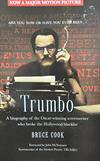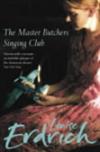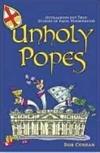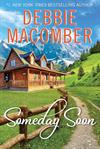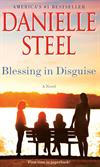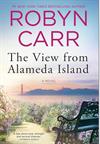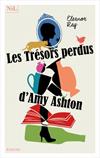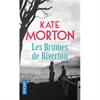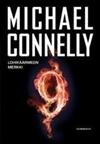
A Feast for Crows (A Song of Ice and Fire, Book 4)
1 journaler for this copy...
This was the first book since I started the series that didn't include any events I already knew about beforehand. Of course, that doesn't say much because honestly not all that much actually happened. Plus, while I know stuff about e.g. Bran and Jon, they didn't feature in this book, which baffled me at first until I remembered reading that this sometimes happened in the series.
I've already noticed with the previous books that they all contain long stretches of time where, strictly speaking, nothing important happens. Instead you have people travelling, meeting other people, and talking, plotting, reminiscing. I don't mind, though. I love the world building! In this book, we visited Braavos, Oldtown and Dorne for the first time and got a closer look at the Iron Islands and their customs, and I appreciated all of it. I'd been looking forwards to seeing Oldtown and the free cities (any of the free cities) and I was super happy to get a glimpse into the life of maester novice already in the prologue.
It took me until about half of the book to come to the conclusion that Bran, Daenerys and Tyrion weren't going to show up in this book. I was a bit disappointed about that, as I'd been looking forwards to learning more about Coldhands in particular, but there were enough other characters I was invested in that the absence even of my favourite characters hardly mattered.
Once I'd figured that out, I figured that the next book would in turn focus on these missing characters and we'd get flashbacks or interspersed memories to learn what they'd been up to in the time we skipped. I was thus surprised to see Martin's authors note, in which he revealed that "A Dance with Dragons" would run in parallel to "A Feast for Crows". I'm not entirely sure how to feel about that. On the one hand, it makes sure we don't miss out on anything that might have happened beyond the Wall and in Meereen; on the other hand, it's bound to slow down the series as a whole.
For some reason, Martin changed the chapter headings for some of the characters. It sort of makes sense for the characters posing as someone else (Arya, Sansa) though I really think he should have stuck with the old system as he never did it for any of Arya's previous disguises. What's more confusing is the use of a character's role rather than name for the different viewpoints telling the events in Dorne and the Iron Islands. At first I figured this was meant to distinguish one-time-only protagonists from the established main characters, but a few of them got more than one chapter, so I'm really not sure what the purpose might have been. For me, it delayed the suspense of who the next character might be (for about one or two paragraphs) and made it harder to remember their names.
As always, I'll colour all my more detailed comments in white that can be made readable by highlighting them.
Arya
I don't understand why Arya was so set on being admitted to the House of Black and White. Sure, the Many-Faced God sounds fascinating and Arya was initially hoping for a chance of deal revenge to her whispered enemies, but she's so clearly opposed to giving up her identity, especially her hatred of these people, that I can't help feeling that her main motivation for sticking around is obstinacy. The kindly man says she can't, so she'll try extra hard just to prove him wrong. She was so happy to be outside again I sort of hoped that would cool her ardour for that road but clearly it didn't.
I was deeply disappointed with Arya with killing Dareon because other than her previous victims he wasn't a threat to her or had done her any harm. Sure, he had betrayed the Night's Watch's vow (and learning that he got his orders from her brother certainly didn't help) but killing him doesn't change the past, nor is it likely that he harm someone else by repeating his crime. Worse, stealing his boots (if just for their symbolic significance) makes it look like petty theft. And worst of all, Arya expected the kindly man to be proud of her for having killed a man. As if any common murderer could claim to be administering the "Gift" in the Many-Faced's name.
Still, I can't decide whether her blinding (which is horrible, to be sure) was supposed to be a punishment (for her hubris, most likely) or reward (for telling the truth about her name, even if she didn't realize it). What upsets me most is, if I read Martin's letter correctly and Dance of Dragons will deal with the other characters but skip these ones (because it takes place over the same time span), that I won't get to see how Arya deals with her affliction for another two books and the next one after that isn't even published yet.
Brienne
As expected, I warmed to Brienne once she became a protagonist. Knowing more than she did, her search for Sansa wasn't as exciting as it could have been, but I appreciated getting a look into Brienne's life and experiences. I'm still not sure whether she actually wishes she had been born a man, thinks of herself of a man in a woman's body, or just decided to become a knight because she didn't have the looks everybody expected of a high-born lady. In any case, I sympathize with her plight.
I had hoped that Lady Catelyn would listen to her explanations, but I realize that was a foolish notion. Catelyn had some pretty fixed ideas of who her enemies were to begin with and being raised from the dead (after losing her son in an unprecedented betrayal) didn't make her any more forgiving. Though I disagree with Catelyn's decision, I get why the outlaws would want to present their prisoners for the mockery of a trial. What I don't understand why Brienne was captured in the first place. She clearly fought at the inn to defend all those children and, other than wielding a Lannister sword, she had done nothing to be treated as an enemy.
The saddest part is not that Brienne was killed (I didn't expect her to survive her encounter with Biter) but that she was hanged for betraying her vows when in fact she'd done everything to keep them. She even refused to swear to set out to kill Jaime because she knew it was an oath she'd have to break. It's just extremely unfair! Also, while I sort of approved of the outlaws' mission when they were still led by Dondarrion, now they're just as bad as the people they set out to fight. I highly doubt that all of the men Brienne and her company found hanged during their travels had participated in the massacre at Saltpans, especially since the main culprits (Biter and his companions) were still alive by that point.
Cersei
I had hoped that reading about Cersei in the first-person would lead to a better understanding and more sympathy for this much maligned character, same as her portrayal in the (first season of the) tv series. And honestly, how hard would that be? She just lost her son, in fact helplessly had to watch her son choke to death, then her father, and her relationship to the man she loved had to be kept secret at all costs. Unfortunately, while this book did extend her depiction of a prideful lioness fiercely protective of her cubs, I disliked her from the start and my sympathy dropped with each successive chapter. By the end, she's managed to outrank Theon as the vilest, most despicable protagonist I've met so far.
Her biggest fault is her inflated ego. She's not completely stupid, but she believes herself to be much smarter than she really is. She also suffers from an unfortunate combination of paranoia and carelessness. Once she's decided on a possible enemy, she views everything as confirmation of her bias, which leads to her naively trusting everyone agreeing (or even pretending to agree) with her dislike/suspicion of Margaery. Rather than subtly winning over key people in Mace Tyrell's extended family (as Tyrion or Tywin would have done), she snubs all of them openly, thereby depriving herself of any sort of influence over the Tyrells. She surrounds herself only with advisors who are unlikely to be a threat to her (too old, too poor, too loyal), then complains about her council being useless. It was Littlefinger, I believe, who mentioned that Cersei fails to consider that any of her pawns might have plans of their own. I appreciate that she's trying to protect Tommen, whatever the cost, but if her plan to kill Margaery is to succeed, she's setting him up as a likely victim of the Tyrell's revenge. She should have known that her plan to accuse Margaery of treason, adultery and fornification held a risk of backfiring badly, especially given Stannis' widely published accusations about her children's parentage.
Honestly, I liked this book but its greatest flaw was having too many chapters focused on Cersei. She turned up every 3 or 4 chapters and I dreaded every single one of them, not because I was afraid of what might happen but because I hated her so much.
That said, for about a chapter or two, I actually admired her deal with the High Septon to reestablish the old fighting orders because she's correct that all her enemies (Stannis, the Starks, the Greyjoys, even Daenerys) should by right be regarded as heretics by the church due to worshipping other gods. However, that was before other characters pointed out the long history of the crown attempting to squash the rebellious brotherhood.
Surprisingly (or not, given her penchant to ignore disagreeable news), Cersei appears to be the only person on Westeros who's still not aware of the (both physical and political) threat of Daenerys' dragons. She's too focused on the "young queen" foretold in an old prophecy to be her downfall to be Margaery, never paying mind to the other possible candidates (which apart from Daenerys could also include Asha, Arianne, even Jeyne Westerling).
I feel that Martin spent way too much time referencing the prophecy before finally describing it in detail. It was getting really annoying! If taken as gospel, it sounds like Cersei is going to outlive all three of her children and live long enough for a "younger and more beautiful queen" to take her place. If that is true, that means that whatever may happen next, there won't be a quick execution. Whether that means that she manages to convince the judges of her innocence or is found guilty but banished or kept in prison for a longer time period. I also wonder whether her "valonqar" might turn out to be Jaime, after all. Though at the moment I fail to see how that might come to pass, she did claim that she was the elder by a few minutes and it would make for a nice twist.
Jaime
I'm very happy with Jaime's development. This is exactly the kind of character arc I was hoping for. He's trying to make up for his mistakes and become a proper knight but he's still kind of grayscale. I liked how he approached the siege on Riverrun. Getting Edmure involved was very clever. I wasn't fooled by Martin's attempt to make it look like Payne killed him, but I'm confused why Edmure would collapse once the rope was cut. He wasn't actually hanging, so he would have firmly stood on both feet. Maybe it was from stress/relief?
I'm a bit puzzled whether his orders to burn Cersei's letter mean that he refuses her call, or simply that he's trying to hide what she asked him to do.
What's the significance of Tom O' Seven Strings? I remember that he was part of Dondarrion's band of outlaws for a while but why was Edmure so consternated at recognizing him?
Samwell
I'm so excited Sam is going to be a maester (novice) because I've really been hoping for an inside view of what the maester training might involve. I was initially confused why Sam was so terrified at the idea of being sent away to the Citadel but his fear of travelling by water and especially meeting his father in Brienne's chapters cleared that up. I worked out quicker than Sam did that Jon had swapped Gilly and Dalla's babies. Aemon's death was sad but I was glad he got a full account of Daenerys and the return of the dragons before he died. It gave an old man hope and happiness.
I am really impressed by Sam's progress. He might not realize it yet but he is nowhere near as cowardly as he used to be. Of course, Jon is employing some "fake it until you make it" strategies by commanding Sam never to call himself a "craven", but being forced to face his fears and surviving (fighting, talking to authority, water) certainly helps. It also sounds like he lost some weight and turned some fat into muscle during the journey.
I am worried about the "alchemist" at the start of the book. I expected something to happen at the Citadel during the entire book and it never happened. It also sounded like something had happened to Pate at the end of the prologue but he's still around in the final chapter. Maybe he's mind controlled or someone else took his place?
Sansa
Honestly, I feel that Sansa's chapters don't add much to the book. They never did, but back in King's Landing at least they provided an alternative viewport. Here at the Eyrie, she's cut off from all news and what's happening in the Vale just doesn't seem all that important. I fully understand why the producers of the tv series decided to change her arc to something that involved more action.
She seems to get on well with little Robert but I'm not sure she really likes him (though this book does a good job of showing him as a scared little kid without losing his "little pest" aspect) and would be sad if he were to die. Littlefinger's plans for her betrothal actually sound like a great marriage prospect (aside from being heir to the Eyrie, Harry is also young, comely and even a promising squire), though of course the reader knows that Sansa is not in fact heir to Winterfell.
Ser Shadrich is the obvious mole among Littlefinger's sellswords, though it's unclear whether he's realized Alayne's true identity yet.
Aside from these main characters, the book also introduced a few other characters who for convenience's sake I'll group together according to their House and location.
Dorne (Princess Arianne, Arys Oakheart, Areo Hotah)
Why do all these characters' names start with Ar--? It's confusing and using some kind of role description in place of the characters' names for the chapter title doesn't help in memorizing them.
I'm not entirely sure I believe Prince Doran. If I was Arianne, I would be highly skeptical. Sure, allying with the Targaryens sounds like a good plan now but back when he presumably hatched his plan for revenge, they were stripped from all power. Before Aerys' death, Viserys would have been a good match but at that point there was no need for vengeance. It's also pretty clear that Viserys had no idea he was betrothed to any Westerosi princess or he would have been trying to seek an army and protection in Dorne instead of or in addition to using his sister to broker an alliance with the Dothraki. In addition to that, I wonder why Doran never explained any of that (or at least that he had a plan for vengeance served very, very cold) when confronted with accusations of weakness and cowardice.
Arianne's plans to spirit Myrcella away and crown her in secret actually sounded pretty good, though I'm fairly sure she never cared much for poor Arys. I still like her and her cousins, though. They're all so fierce and resourceful. Who betrayed her, though? (If anyone did. Her father might have lied about that if he in fact someone else told who happened to overhear something or noticed some other kind of suspicious behavior.)
News of Myrcella's disfiguration might be enough to evoke Cersei's wrath if she manages to escape her trial somehow, whatever lies they tell about how it happened.
The Iron Islands (Damphair, Asha, Victarion)
For some reasons, the thought of raiding pirates creeps me out more than the other atrocities committed by groups of attackers. Possibly because they arrive out of nowhere and (if you lack ships of your own) can disappear just as quickly. Also if they attack you at sea, there's nowhere for you to run or hide.
Still, the kingsmoot was interesting, and I also appreciated the deeper insight into the Drowned God religion as well as the Greatjoy family. I wonder what's up with Damphair's creaking door memory. Something to do with one of his dead brothers?
I also wonder what Asha is up to, now that her grandiose plans for her queensmoot (which were doomed to fail, but I applaud her audacity) have failed.
The title confuses me. While the phrase "a feast for crows" was referenced or even mentioned a couple of times, it was always in relation to some battle in the past. I guess it could refer to all the hanged corpses Brienne encounters but that seems a bit of a stretch, especially compared to the previous books, all of which (even the first half of "A Storm of Swords", which was pretty slow as well) involved a lot more carnage.
Also, I wish someone would introduce a map showing both coasts along the Narrow Sea. I have no idea where Braavos is located relative to Westeros (or Valyria) and Lys, Tyrosh, Myr and all these other places also sound like they might be relevant. A map of the city layout of Braavos would also have been nice. I know I could look it up on the internet but that brings the danger of inadvertently spoiling myself on future plot points and is not the same as being able to look things up by paging towards the front of the book.
To my great surprise, the theme for this book was "strong female characters". I already mentioned in my review of the first book that I was prejudiced from various reports I'd read and expected large amounts of sexism, which unfortunately did play a large role in the (first season of the) tv series, but absolutely is not the case for the books.
Despite the complete absence of Daenerys and Melisandre, this book featured a plethora of powerful, strong, brash and resourceful female characters. Out of the 6 main characters, 4 were female. Due to the large focus on Cersei and Samwell only appearing in a few chapters, at least half of the book (probably closer to two thirds, actually) were told from a female perspective. Now I didn't care much for Cersei and found Sansa's chapters rather dull, but Arya, Brienne, Asha and Arianne are all pretty awesome and even the non-POV characters included some pretty fascinating women: the elder Sand Snakes, Taena Merryweather, Genna Frey, etc.
Taking into account characters from earlier books, the list can be extended easily to include Ygrette and Mirri Maz Duur and the Queen of Thorns and Lady Catelyn. I've already mentioned Melisandre and, of course, there's always Daenerys.
I don't know why this amazes me so much, but I was pretty stoked by this discovery.
The term "dance of dragons" was mentioned once in this book in reference to a battle among two Targaryen siblings of old that presumably was fought with actual dragons. I wonder what this means for the next book(s). A few characters are heading towards Meereen, both enemies and friends of Queen Daenerys, but if the next book is supposed to take place in parallel to this one, I wouldn't expect any of them to arrive until the end of the second book. Maybe Melisandre does manage to raise a stone dragon for Stannis and they challenge Daenerys? Again, that doesn't make sense due to the geographical distance between these characters. Maybe I'm taking things too literally and the title is just meant to indicate that the story centers around Daenerys... I'd like that.
Next book: A Dance with Dragons I
I've already noticed with the previous books that they all contain long stretches of time where, strictly speaking, nothing important happens. Instead you have people travelling, meeting other people, and talking, plotting, reminiscing. I don't mind, though. I love the world building! In this book, we visited Braavos, Oldtown and Dorne for the first time and got a closer look at the Iron Islands and their customs, and I appreciated all of it. I'd been looking forwards to seeing Oldtown and the free cities (any of the free cities) and I was super happy to get a glimpse into the life of maester novice already in the prologue.
It took me until about half of the book to come to the conclusion that Bran, Daenerys and Tyrion weren't going to show up in this book. I was a bit disappointed about that, as I'd been looking forwards to learning more about Coldhands in particular, but there were enough other characters I was invested in that the absence even of my favourite characters hardly mattered.
Once I'd figured that out, I figured that the next book would in turn focus on these missing characters and we'd get flashbacks or interspersed memories to learn what they'd been up to in the time we skipped. I was thus surprised to see Martin's authors note, in which he revealed that "A Dance with Dragons" would run in parallel to "A Feast for Crows". I'm not entirely sure how to feel about that. On the one hand, it makes sure we don't miss out on anything that might have happened beyond the Wall and in Meereen; on the other hand, it's bound to slow down the series as a whole.
For some reason, Martin changed the chapter headings for some of the characters. It sort of makes sense for the characters posing as someone else (Arya, Sansa) though I really think he should have stuck with the old system as he never did it for any of Arya's previous disguises. What's more confusing is the use of a character's role rather than name for the different viewpoints telling the events in Dorne and the Iron Islands. At first I figured this was meant to distinguish one-time-only protagonists from the established main characters, but a few of them got more than one chapter, so I'm really not sure what the purpose might have been. For me, it delayed the suspense of who the next character might be (for about one or two paragraphs) and made it harder to remember their names.
As always, I'll colour all my more detailed comments in white that can be made readable by highlighting them.
Arya
I don't understand why Arya was so set on being admitted to the House of Black and White. Sure, the Many-Faced God sounds fascinating and Arya was initially hoping for a chance of deal revenge to her whispered enemies, but she's so clearly opposed to giving up her identity, especially her hatred of these people, that I can't help feeling that her main motivation for sticking around is obstinacy. The kindly man says she can't, so she'll try extra hard just to prove him wrong. She was so happy to be outside again I sort of hoped that would cool her ardour for that road but clearly it didn't.
I was deeply disappointed with Arya with killing Dareon because other than her previous victims he wasn't a threat to her or had done her any harm. Sure, he had betrayed the Night's Watch's vow (and learning that he got his orders from her brother certainly didn't help) but killing him doesn't change the past, nor is it likely that he harm someone else by repeating his crime. Worse, stealing his boots (if just for their symbolic significance) makes it look like petty theft. And worst of all, Arya expected the kindly man to be proud of her for having killed a man. As if any common murderer could claim to be administering the "Gift" in the Many-Faced's name.
Still, I can't decide whether her blinding (which is horrible, to be sure) was supposed to be a punishment (for her hubris, most likely) or reward (for telling the truth about her name, even if she didn't realize it). What upsets me most is, if I read Martin's letter correctly and Dance of Dragons will deal with the other characters but skip these ones (because it takes place over the same time span), that I won't get to see how Arya deals with her affliction for another two books and the next one after that isn't even published yet.
Brienne
As expected, I warmed to Brienne once she became a protagonist. Knowing more than she did, her search for Sansa wasn't as exciting as it could have been, but I appreciated getting a look into Brienne's life and experiences. I'm still not sure whether she actually wishes she had been born a man, thinks of herself of a man in a woman's body, or just decided to become a knight because she didn't have the looks everybody expected of a high-born lady. In any case, I sympathize with her plight.
I had hoped that Lady Catelyn would listen to her explanations, but I realize that was a foolish notion. Catelyn had some pretty fixed ideas of who her enemies were to begin with and being raised from the dead (after losing her son in an unprecedented betrayal) didn't make her any more forgiving. Though I disagree with Catelyn's decision, I get why the outlaws would want to present their prisoners for the mockery of a trial. What I don't understand why Brienne was captured in the first place. She clearly fought at the inn to defend all those children and, other than wielding a Lannister sword, she had done nothing to be treated as an enemy.
The saddest part is not that Brienne was killed (I didn't expect her to survive her encounter with Biter) but that she was hanged for betraying her vows when in fact she'd done everything to keep them. She even refused to swear to set out to kill Jaime because she knew it was an oath she'd have to break. It's just extremely unfair! Also, while I sort of approved of the outlaws' mission when they were still led by Dondarrion, now they're just as bad as the people they set out to fight. I highly doubt that all of the men Brienne and her company found hanged during their travels had participated in the massacre at Saltpans, especially since the main culprits (Biter and his companions) were still alive by that point.
Cersei
I had hoped that reading about Cersei in the first-person would lead to a better understanding and more sympathy for this much maligned character, same as her portrayal in the (first season of the) tv series. And honestly, how hard would that be? She just lost her son, in fact helplessly had to watch her son choke to death, then her father, and her relationship to the man she loved had to be kept secret at all costs. Unfortunately, while this book did extend her depiction of a prideful lioness fiercely protective of her cubs, I disliked her from the start and my sympathy dropped with each successive chapter. By the end, she's managed to outrank Theon as the vilest, most despicable protagonist I've met so far.
Her biggest fault is her inflated ego. She's not completely stupid, but she believes herself to be much smarter than she really is. She also suffers from an unfortunate combination of paranoia and carelessness. Once she's decided on a possible enemy, she views everything as confirmation of her bias, which leads to her naively trusting everyone agreeing (or even pretending to agree) with her dislike/suspicion of Margaery. Rather than subtly winning over key people in Mace Tyrell's extended family (as Tyrion or Tywin would have done), she snubs all of them openly, thereby depriving herself of any sort of influence over the Tyrells. She surrounds herself only with advisors who are unlikely to be a threat to her (too old, too poor, too loyal), then complains about her council being useless. It was Littlefinger, I believe, who mentioned that Cersei fails to consider that any of her pawns might have plans of their own. I appreciate that she's trying to protect Tommen, whatever the cost, but if her plan to kill Margaery is to succeed, she's setting him up as a likely victim of the Tyrell's revenge. She should have known that her plan to accuse Margaery of treason, adultery and fornification held a risk of backfiring badly, especially given Stannis' widely published accusations about her children's parentage.
Honestly, I liked this book but its greatest flaw was having too many chapters focused on Cersei. She turned up every 3 or 4 chapters and I dreaded every single one of them, not because I was afraid of what might happen but because I hated her so much.
That said, for about a chapter or two, I actually admired her deal with the High Septon to reestablish the old fighting orders because she's correct that all her enemies (Stannis, the Starks, the Greyjoys, even Daenerys) should by right be regarded as heretics by the church due to worshipping other gods. However, that was before other characters pointed out the long history of the crown attempting to squash the rebellious brotherhood.
Surprisingly (or not, given her penchant to ignore disagreeable news), Cersei appears to be the only person on Westeros who's still not aware of the (both physical and political) threat of Daenerys' dragons. She's too focused on the "young queen" foretold in an old prophecy to be her downfall to be Margaery, never paying mind to the other possible candidates (which apart from Daenerys could also include Asha, Arianne, even Jeyne Westerling).
I feel that Martin spent way too much time referencing the prophecy before finally describing it in detail. It was getting really annoying! If taken as gospel, it sounds like Cersei is going to outlive all three of her children and live long enough for a "younger and more beautiful queen" to take her place. If that is true, that means that whatever may happen next, there won't be a quick execution. Whether that means that she manages to convince the judges of her innocence or is found guilty but banished or kept in prison for a longer time period. I also wonder whether her "valonqar" might turn out to be Jaime, after all. Though at the moment I fail to see how that might come to pass, she did claim that she was the elder by a few minutes and it would make for a nice twist.
Jaime
I'm very happy with Jaime's development. This is exactly the kind of character arc I was hoping for. He's trying to make up for his mistakes and become a proper knight but he's still kind of grayscale. I liked how he approached the siege on Riverrun. Getting Edmure involved was very clever. I wasn't fooled by Martin's attempt to make it look like Payne killed him, but I'm confused why Edmure would collapse once the rope was cut. He wasn't actually hanging, so he would have firmly stood on both feet. Maybe it was from stress/relief?
I'm a bit puzzled whether his orders to burn Cersei's letter mean that he refuses her call, or simply that he's trying to hide what she asked him to do.
What's the significance of Tom O' Seven Strings? I remember that he was part of Dondarrion's band of outlaws for a while but why was Edmure so consternated at recognizing him?
Samwell
I'm so excited Sam is going to be a maester (novice) because I've really been hoping for an inside view of what the maester training might involve. I was initially confused why Sam was so terrified at the idea of being sent away to the Citadel but his fear of travelling by water and especially meeting his father in Brienne's chapters cleared that up. I worked out quicker than Sam did that Jon had swapped Gilly and Dalla's babies. Aemon's death was sad but I was glad he got a full account of Daenerys and the return of the dragons before he died. It gave an old man hope and happiness.
I am really impressed by Sam's progress. He might not realize it yet but he is nowhere near as cowardly as he used to be. Of course, Jon is employing some "fake it until you make it" strategies by commanding Sam never to call himself a "craven", but being forced to face his fears and surviving (fighting, talking to authority, water) certainly helps. It also sounds like he lost some weight and turned some fat into muscle during the journey.
I am worried about the "alchemist" at the start of the book. I expected something to happen at the Citadel during the entire book and it never happened. It also sounded like something had happened to Pate at the end of the prologue but he's still around in the final chapter. Maybe he's mind controlled or someone else took his place?
Sansa
Honestly, I feel that Sansa's chapters don't add much to the book. They never did, but back in King's Landing at least they provided an alternative viewport. Here at the Eyrie, she's cut off from all news and what's happening in the Vale just doesn't seem all that important. I fully understand why the producers of the tv series decided to change her arc to something that involved more action.
She seems to get on well with little Robert but I'm not sure she really likes him (though this book does a good job of showing him as a scared little kid without losing his "little pest" aspect) and would be sad if he were to die. Littlefinger's plans for her betrothal actually sound like a great marriage prospect (aside from being heir to the Eyrie, Harry is also young, comely and even a promising squire), though of course the reader knows that Sansa is not in fact heir to Winterfell.
Ser Shadrich is the obvious mole among Littlefinger's sellswords, though it's unclear whether he's realized Alayne's true identity yet.
Aside from these main characters, the book also introduced a few other characters who for convenience's sake I'll group together according to their House and location.
Dorne (Princess Arianne, Arys Oakheart, Areo Hotah)
Why do all these characters' names start with Ar--? It's confusing and using some kind of role description in place of the characters' names for the chapter title doesn't help in memorizing them.
I'm not entirely sure I believe Prince Doran. If I was Arianne, I would be highly skeptical. Sure, allying with the Targaryens sounds like a good plan now but back when he presumably hatched his plan for revenge, they were stripped from all power. Before Aerys' death, Viserys would have been a good match but at that point there was no need for vengeance. It's also pretty clear that Viserys had no idea he was betrothed to any Westerosi princess or he would have been trying to seek an army and protection in Dorne instead of or in addition to using his sister to broker an alliance with the Dothraki. In addition to that, I wonder why Doran never explained any of that (or at least that he had a plan for vengeance served very, very cold) when confronted with accusations of weakness and cowardice.
Arianne's plans to spirit Myrcella away and crown her in secret actually sounded pretty good, though I'm fairly sure she never cared much for poor Arys. I still like her and her cousins, though. They're all so fierce and resourceful. Who betrayed her, though? (If anyone did. Her father might have lied about that if he in fact someone else told who happened to overhear something or noticed some other kind of suspicious behavior.)
News of Myrcella's disfiguration might be enough to evoke Cersei's wrath if she manages to escape her trial somehow, whatever lies they tell about how it happened.
The Iron Islands (Damphair, Asha, Victarion)
For some reasons, the thought of raiding pirates creeps me out more than the other atrocities committed by groups of attackers. Possibly because they arrive out of nowhere and (if you lack ships of your own) can disappear just as quickly. Also if they attack you at sea, there's nowhere for you to run or hide.
Still, the kingsmoot was interesting, and I also appreciated the deeper insight into the Drowned God religion as well as the Greatjoy family. I wonder what's up with Damphair's creaking door memory. Something to do with one of his dead brothers?
I also wonder what Asha is up to, now that her grandiose plans for her queensmoot (which were doomed to fail, but I applaud her audacity) have failed.
The title confuses me. While the phrase "a feast for crows" was referenced or even mentioned a couple of times, it was always in relation to some battle in the past. I guess it could refer to all the hanged corpses Brienne encounters but that seems a bit of a stretch, especially compared to the previous books, all of which (even the first half of "A Storm of Swords", which was pretty slow as well) involved a lot more carnage.
Also, I wish someone would introduce a map showing both coasts along the Narrow Sea. I have no idea where Braavos is located relative to Westeros (or Valyria) and Lys, Tyrosh, Myr and all these other places also sound like they might be relevant. A map of the city layout of Braavos would also have been nice. I know I could look it up on the internet but that brings the danger of inadvertently spoiling myself on future plot points and is not the same as being able to look things up by paging towards the front of the book.
To my great surprise, the theme for this book was "strong female characters". I already mentioned in my review of the first book that I was prejudiced from various reports I'd read and expected large amounts of sexism, which unfortunately did play a large role in the (first season of the) tv series, but absolutely is not the case for the books.
Despite the complete absence of Daenerys and Melisandre, this book featured a plethora of powerful, strong, brash and resourceful female characters. Out of the 6 main characters, 4 were female. Due to the large focus on Cersei and Samwell only appearing in a few chapters, at least half of the book (probably closer to two thirds, actually) were told from a female perspective. Now I didn't care much for Cersei and found Sansa's chapters rather dull, but Arya, Brienne, Asha and Arianne are all pretty awesome and even the non-POV characters included some pretty fascinating women: the elder Sand Snakes, Taena Merryweather, Genna Frey, etc.
Taking into account characters from earlier books, the list can be extended easily to include Ygrette and Mirri Maz Duur and the Queen of Thorns and Lady Catelyn. I've already mentioned Melisandre and, of course, there's always Daenerys.
I don't know why this amazes me so much, but I was pretty stoked by this discovery.
The term "dance of dragons" was mentioned once in this book in reference to a battle among two Targaryen siblings of old that presumably was fought with actual dragons. I wonder what this means for the next book(s). A few characters are heading towards Meereen, both enemies and friends of Queen Daenerys, but if the next book is supposed to take place in parallel to this one, I wouldn't expect any of them to arrive until the end of the second book. Maybe Melisandre does manage to raise a stone dragon for Stannis and they challenge Daenerys? Again, that doesn't make sense due to the geographical distance between these characters. Maybe I'm taking things too literally and the title is just meant to indicate that the story centers around Daenerys... I'd like that.
Next book: A Dance with Dragons I
